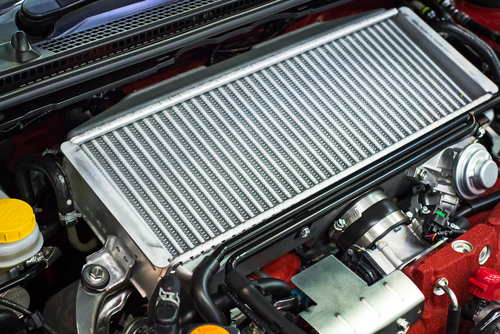Engine overheating is a common and potentially serious issue that can have a negative impact for any vehicle. This can cause significant damage to various internal components if not addressed promptly. Several different factors can contribute to engine overheating, and understanding these issues is crucial for maintaining your vehicle. So what are the most common engine overheating problems?
What are some of the most common engine overheating problems?
There are a number of factors that cause engine overheating for any vehicle. These include:
- A malfunctioning thermostat
- A leak in the cooling system
- Inadequate coolant levels
- A malfunctioning radiator fan
- A clogged or restricted radiator
- Coolant contamination
- Faulty water pump
A malfunctioning thermostat
One common cause of engine overheating is a malfunctioning thermostat. The thermostat plays a pivotal role.in engine performance as this regulates the flow of coolant through the engine. As such, if this fails to open or close at the appropriate temperatures, it can disrupt the cooling system’s balance, resulting in insufficient coolant circulation, and leading to elevated engine temperatures. As such, regular checks and timely replacement of a faulty thermostat can prevent this issue.
Leak in the cooling system
Another culprit behind engine overheating is a leak in the cooling system. Whether it’s a cracked radiator, a damaged hose, or a faulty water pump, any breach in the cooling system can lead to a loss of coolant. A depleted coolant level results in less heat absorption and dissipation, ultimately causing the engine to overheat. As a result, routine inspections of the cooling system, including hoses and radiators, can help to identify and address potential leaks before they escalate.
Inadequate coolant levels
Inadequate coolant levels, often caused by neglecting regular maintenance, can be a factor that contributes notably to overheating. Coolant not only dissipates heat but also prevents freezing and corrosion within the cooling system. As such, neglecting to check and replenish coolant levels can lead to decreased heat transfer efficiency and, ultimately, engine overheating. Routine coolant checks and scheduled flushes are essential preventive measures that can help your vehicle avoid problems and issues.
A malfunctioning radiator fan
The radiator fan plays a crucial role in dissipating heat from the engine by pulling air through the radiator. If the fan fails to operate correctly, especially at low speeds, the engine may experience overheating. Regular inspection of the fan motor, blades, and associated components can help to identify and resolve potential issues.
A clogged or restricted radiator
Over time, debris, dirt, and scale can accumulate in the radiator, impeding the flow of coolant and reducing its ability to dissipate heat effectively. Flushing the radiator at recommended intervals helps to prevent these blockages and ensures optimal cooling system performance.
Coolant contamination
Engine coolant contamination is a less obvious but equally problematic cause of overheating. Mixing different types of coolant or using a coolant that doesn’t meet the vehicle manufacturer’s specifications can result in chemical reactions that compromise the fluid’s ability to transfer heat. Following the manufacturer’s recommendations for coolant type and adhering to prescribed change intervals are crucial steps in preventing this issue.
Here at MRS Heat Transfer we are radiator, car heater, intercooler, and air conditioning experts, and we have the skills, knowledge and expertise to resolve any air conditioning or car heater problem. Why not get in touch today to find out more?

